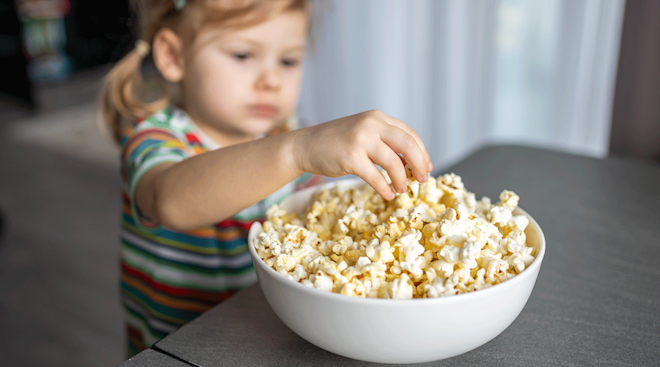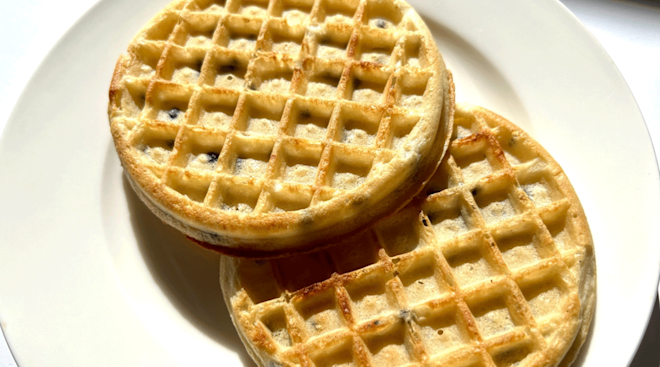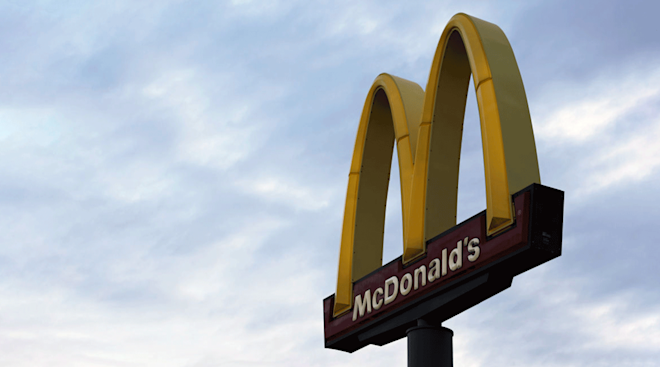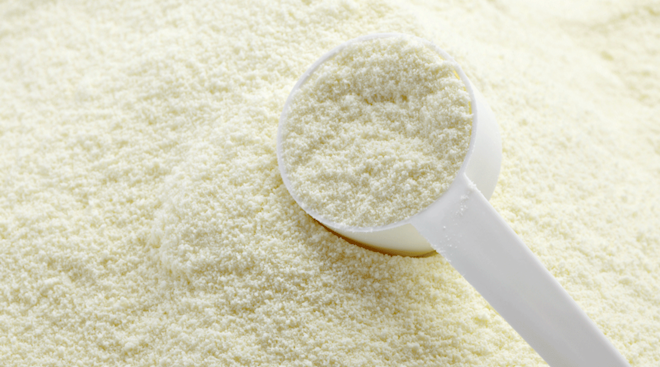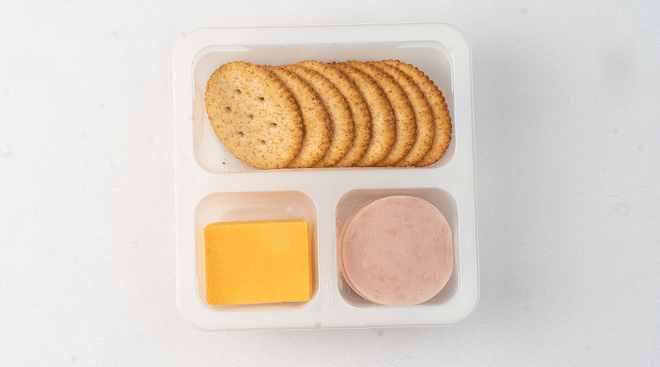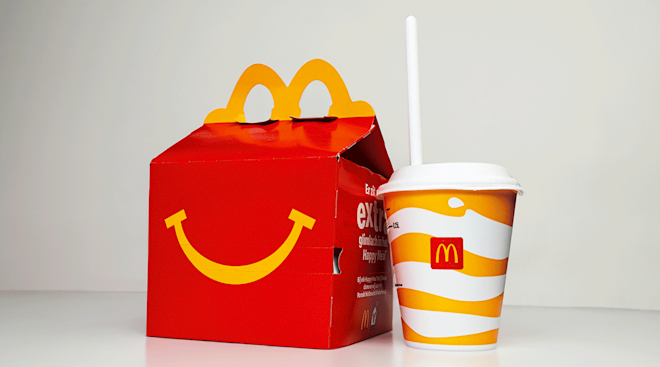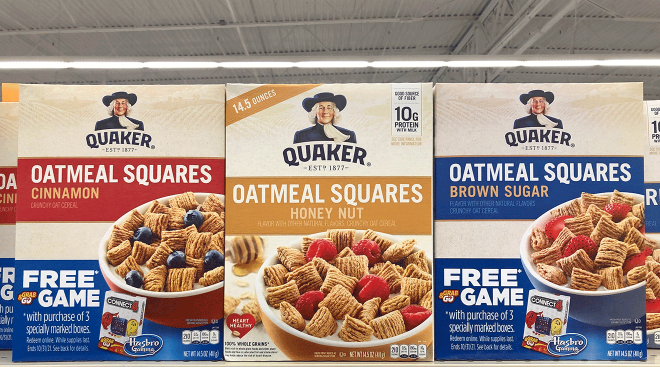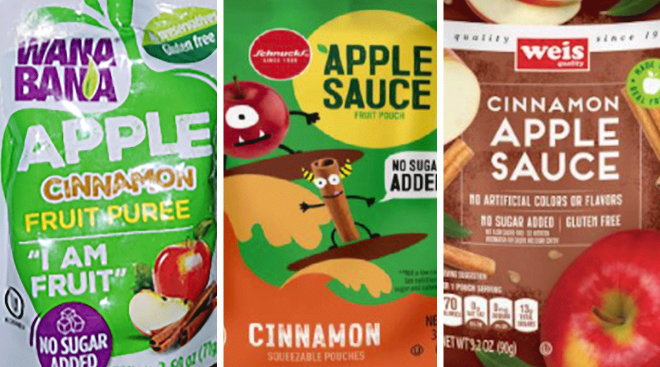11 Tips for Keeping Baby Safe at Mealtime
Watching baby try solid food for the first can be a magical moment. You find out what kind of flavors baby likes and dislikes—and get some pretty cute and funny photos out of the ordeal. But while introducing baby to all your favorite foods is no doubt an important milestone, you’ll want to ensure you’re doing it safely and avoiding choking hazards and other risks. Read on as pediatric experts share their top tips for keeping baby safe at mealtime.
Before you offer your little one solids, you’ll want to make sure their body can handle them. “You shouldn’t feed solid foods before 4 months of age because babies’ digestive tracts are still developing,” explains Erika Nolte, PhD, science director with baby food brand Ready, Set, Food. She says you’ll want to watch for some signs that “baby has the right muscle control and reflexes to safely swallow and avoid choking.” This will typically be some time between the four- and six-month marks. These include baby being able to hold their head up and sit up independently, as well displaying an interest in food and bringing things (like toys) to their mouth. This shows they have the hand-eye coordination to safely feed themselves, Nolte adds.
While baby may be starting to teeth, they’re a long way from being able to chew. “Providing appropriately textured food based on your baby’s age and skill level is essential,” notes Kathleen Garcia-Benson, RDN, CSSD, a registered dietitian with Top Nutrition Coaching. It’s important to ensure the solids are soft enough for little gums to mash and swallow, even when following baby’s cues with baby-led weaning. That doesn’t mean you have to avoid all hard foods (like carrots)—just cook or steam them until you can mash them with a finger. You can also puree or grate soft foods to make them safe for baby to eat, as well as cut them into small pieces (smaller than half an inch), Nolte says. You’ll just need to check the temperature of any hot food to ensure it’s cool enough for baby to eat. Foods to avoid offering include hard, small, round or sticky foods, like whole grapes, popcorn, nuts and globs of peanut butter, as these are infant choking hazards, Garcia-Benson adds.
While it may seem more convenient to feed baby from your lap, it’s really best to keep them stabilized and buckled in a high chair or booster seat during mealtimes. “Moving around increases their risk of choking,” Nolte explains. If that’s not possible, make sure to stay seated if baby’s on your lap and try not to move them around too much while feeding them. You also want to avoid feeling baby in their car seat, due to “the natural tilt-back position, which can [also] increase the risk of choking” Garcia-Benson says.
While you’re at it, use baby safe utensils that won’t hurt tiny mouths.
Since eating is a new skill for baby, you’ll want to watch them closely. “Create a calm, distraction-free environment during meals to help them focus on eating safely…[and] avoid making baby laugh while they have food in their mouth,” as this can increase their risk of choking, Garcia-Benson says. “Choking in babies can happen silently, so it’s crucial to be fully present.”
An easy way to watch baby during meals is to simply eat with them, Nolte adds. “This models good eating behaviors and may even be tied to healthier eating habits when they’re older.”
Along with preventing circumstances that could lead to choking, it’s important to learn how to perform infant CPR in case of an emergency. Classes are usually available through your local American Heart Association chapter, says Elizabeth Cilenti, MD, MPH, a pediatrician with Northern Virginia Family Practice. It’s also a good idea to ask grandparents, babysitters and anyone else who might be watching baby during mealtimes to take an infant CPR course too.
Another big topic when it comes to infant mealtime safety is allergens. While the guidance used to be to steer clear of common allergens, the American Academy of Pediatrics now recommends introducing them early. These common allergens include baby-safe forms of peanuts and tree nuts, eggs, select dairy products, fish and shellfish, wheat, sesame seeds and soy. According to research, the “golden window” for introducing these foods is between 4 to 6 months. This is when “baby’s immune system develops tolerance for all kinds of foods,” Nolte explains. “Eating common allergens during this window and then throughout infancy and toddlerhood can prevent about 80 percent of food allergies.”
While you’ll want to introduce these allergens early on, it’s important to do so one at a time, waiting a few days in between. This is helpful in monitoring and identifying any allergic reactions, Garcia-Benson notes.
“It’s understandable that introducing new foods can be anxiety-producing for families,” adds Zahida Rani Maskatia, MD, an allergist and immunologist and medical director at Latitude Food Allergy Care. “But, introducing new foods is especially beneficial for infants with eczema, who may have a higher risk of developing a food allergy.” (However, if baby does have eczema or known allergies, your pediatrician may want you to introduce allergens to baby in the office so they can monitor them.)
It’s important to arm yourself with the knowledge of what an allergic reaction to food looks like in babies—even if there’s no family history of allergies. “It often surprises families to learn that babies can be allergic without any family history of food allergies,” Maskatia says.
Allergic reactions usually occur an hour after eating the food, but may also occur later in the day, she explains. Symptoms include hives, rashes, swelling, red skin and vomiting. Signs of a more severe reaction, such as anaphylaxis, include severe coughing, wheezing, difficulty breathing, difficulty swallowing, difficulty speaking, a weak or fast heart rate and low blood pressure. If baby has signs of an allergic reaction, call your pediatrician, and if they exhibit signs of a severe allergic reaction, call 911. “Anaphylaxis can cause the body to go into shock and must be treated with immediate medical attention,” Maskatia says.
To ensure baby has “a lifelong healthy relationship with food,” she recommends introducing them to a variety of nutrient-dense items. This includes different types of pureed meats, fruits and vegetables, Maskatia says. “Expose them to as many flavors and textures as possible to improve the chances that baby grows into a healthy eater,” Nolte adds. Do this by mixing up your usual meals and allowing baby to try new foods. You’ll also want to avoid labeling a certain food as “good” or “bad” to help baby build a secure relationship with food.
It’s entirely possible baby may not like something the first time they try it—but don’t hesitate to give it a second try another day. If you offer it to them again and again, over time, their tastes may change. “Many babies are open to trying a variety of foods before common toddler pickiness sets in, so take advantage of this time to introduce your baby to a range of flavors and textures,” Garcia-Benson advises. “Doing so may help reduce feeding challenges as they get older.”
You already know the foods that pose choking hazards, but there are some other common ingredients that infants can’t safely have, including cow’s milk. Babies can’t have cow’s milk until after their first birthday, as it has “a much higher protein content that baby can’t easily digest,” Nolte explains. However, they can have cheese and yogurt—and they should, as it’s a good way to introduce dairy (just make sure these products are pasteurized!). Similarly, babies can’t have honey before they’re a year old. Nolte explains that it can contain bacteria which baby’s immune system can’t yet handle and can cause infant botulism.
Additionally, avoid anything with tons of added sugar and salt until baby’s at least 2 years old. As Nolte explains, too much salt can hurt baby’s kidneys, which are still developing. Little ones can still enjoy a wide range of any spice and herb blends you use in your cooking, but just make sure to limit salt. You also want to avoid giving baby too much added sugar. Babies have thousands more tastebuds than adults, Nolte says, so they experience food a bit more strongly than we do. “Foods like fruit are already naturally a lot sweeter to them,” she says.
Babies have a pretty good understanding of when they’re hungry and full—and it’s worth watching for and listening to their hunger cues, Nolte says. It may be challenging because you want baby to grow and remain healthy, but if they’re done eating, don’t force them to finish the food in front of them. (If they’re still hungry, though, by all means offer them more!).
Please note: The Bump and the materials and information it contains are not intended to, and do not constitute, medical or other health advice or diagnosis and should not be used as such. You should always consult with a qualified physician or health professional about your specific circumstances.
Plus, more from The Bump:
Elizabeth Cilenti, MD, MPH, is a pediatrician with Northern Virginia Family Practice. She completed her medical degree and residency at Indiana University School of Medicine and her master’s degree in public health at the Harvard T.H. Chan School of Public Health.
Kathleen Garcia-Benson, RDN, CSSD, is a registered dietitian with Top Nutrition Coaching. She’s also a certified personal trainer with National Academy of Sports Medicine, as well as a national board certified health and wellness coach. She earned her registered dietitian nutritionist degree from Texas A&M University and Oakwood University.
Zahida Rani Maskatia, MD, is board certified in pediatric and adult allergy and immunology, as well as the medical director at Latitude Food Allergy Care. She earned her medical degree at the University of Michigan Medical School and completed her residency at Baylor College of Medicine in Houston, Texas.
Erika Nolte, PhD, is a science director with baby food brand Ready, Set, Food! She earned her doctorate in pharmacology and toxicology from the University of Kansas.
Pediatrics (American Academy of Pediatrics), Updates in Food Allergy Prevention in Children, October 2023
Learn how we ensure the accuracy of our content through our editorial and medical review process.
Navigate forward to interact with the calendar and select a date. Press the question mark key to get the keyboard shortcuts for changing dates.


































